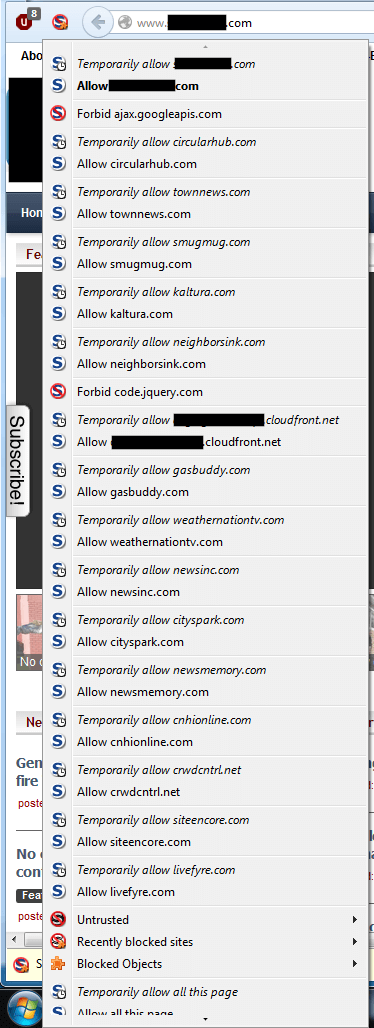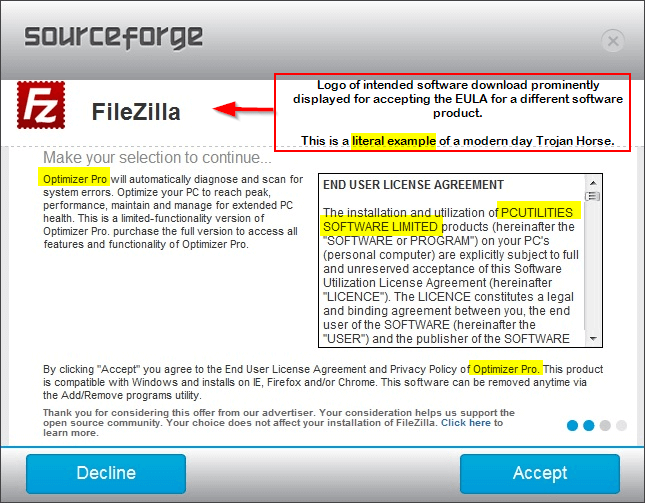
When it comes to online advertising, users are refusing to allow ads in their browsers. Credit: No! (1954, V.I. Govorkov)
Scott Cunningham of the Interactive Advertising Bureau (otherwise known as the IAB, the largest collective of online advertisers responsible for ~85% of United States online ads,) made quite an interesting blog post a few days ago. In this post, he reveals some information that should be shocking to approximately nobody; online advertisements have been too invasive and too annoying for far too long, and it’s time “we do something about it so we don’t affect the user experience,” of browsing the internet.
At first this sounds altruistic and compassionate until you get about halfway down the post. And I quote:
“The rise of ad blocking poses a threat to the internet and could potentially drive users to an enclosed platform world dominated by a few companies.”
Scott’s accusation of Ad blocking software posing a threat, in my humble opinion, is one of the biggest examples of cognitive dissonance I’ve seen in recent memory. He admits early on in his posting that online advertising has become such a problem that it drains device batteries prematurely, consumes excessive system resources, and tries people’s patience.
“The fast, scalable systems of targeting users with ever-heftier advertisements have slowed down the public internet and drained more than a few batteries. We were so clever and so good at it that we over-engineered the capabilities of the plumbing laid down by, well, ourselves. This steamrolled the users, depleted their devices, and tried their patience.”
How is blocking this a threat to the internet, exactly? I don’t accept “We lose our revenue stream,” as a valid answer to how that’s a threat to the internet. That’s simply a threat to your business model. Oddly enough, he conveniently left out one of the most important problems that users face when allowing every advertisement through their browser. 3rd party advertising is a frequently used attack vector for malware delivery. One does not have to search very hard to find examples where vulnerable javascript has led to the distribution of malicious code.
He then goes on to say what the IAB plans to do about ad-blocking software, with their LEAN ads initiative. He describes more about the LEAN initiative in the blog post linked above, and I’m not here to talk about their future plans with this post. I’m here to talk about why the LEAN initiative is too little, too late.
As a Systems Engineer for a VAR I have to be familiar with not only the technology platforms that we offer our customers, but also have to understand our customers needs, wants, and future plans. As a general nerd I do my best to understand how things work and how I can get the most out of the devices I own (both digital and mechanical.) That said, I get the most out of my browsing experience by blocking advertisements with browser extensions such as NoScript and uBlock Origin for Firefox.
I get called upon from time to time to assist my family members with computer problems. These are everyday people who are running various Windows “Home” editions, and I cannot believe that they are able to use their computers at all; let alone do things such as online shopping/bill pay/banking with the amount of memory hogging bloatware, DNS hijacking search toolbars, bandwidth hungry video ads, and 3rd party javascript doing who-knows-what that loads on a large % of websites. Every one of these terrible things can be directly attributed to online advertising. In my opinion, too many companies seem to have lost sight of what the true goal of advertising should be.
“PUT MY PRODUCT INFORMATION IN FRONT OF THE EYEBALLS OF PEOPLE WHO MAY WANT TO BUY IT.”
Your goal is not to funnel as many devices as possible to your content, because quantity =\= quality. Your goal is not to redirect people’s searches through your partners and affiliates. Your goal is NOT to bundle your advertising network “browser helper” software into anything ever. These are the kinds of activities practiced by Eastern European hacking groups that hock placebo “enhancement” pills or steal people’s PII. If your company, or the company you work for, participates in these kinds of activities you are the problem.
If you are an advertiser, and I hope that this blog post reaches at least a few of your eyes, here’s how you DON’T accomplish the primary goal of advertising:
- Showing people things that they have already purchased. If I recently purchased <Widget> am I more inclined to buy another <Widget> if I’m bombarded with ads for the same product I just bought? This is one of the big failings of “targeted” advertising. You will only hit your target if your advertising software knows how to aim properly.
- Automatically load video / audio advertisements on websites that are not dedicated to streaming video or audio. If I am going to a news website and my reading concentration is suddenly interrupted by a loud/obnoxious advertisement it’s a pretty safe bet that I won’t be researching that product further, other than to figure out which CDN it’s on so it won’t bypass my ad blocker again.
- Distribute my browsing information to a network of 3rd parties through heavy use of javascript. For this bullet point, I just want to show you a screenshot of my NoScript extension on my local newspaper’s website. This is what people DON’T want when they want to read online content.
- Use of deceptive wording and imagery when bundling your “product” with what is otherwise Free and Open Source Software.Example:
I don’t know what the solution is for the future of online marketing, but I can tell the online advertising industry this much: Ad-blockers are not going away. Advertisers have poked, prodded, annoyed, interfered, and injected themselves into the end-user browsing experience so much over the past 20 years that the “every-man” has finally hit the boiling point and done what advertisers feared the most; they asked the golden question:
“Shouldn’t my computer be able to run without all this junk on it?”
When everyday people start asking questions like that, you know that you’ve officially screwed up beyond the point of saving it. The ship has hit the iceberg. The water is pouring through the breach. There are only a few lifeboats. There will not be room in those lifeboats for advertising firms that make use of the above practices. I hope you have some innovators on your team, or that you’re a really good swimmer!


